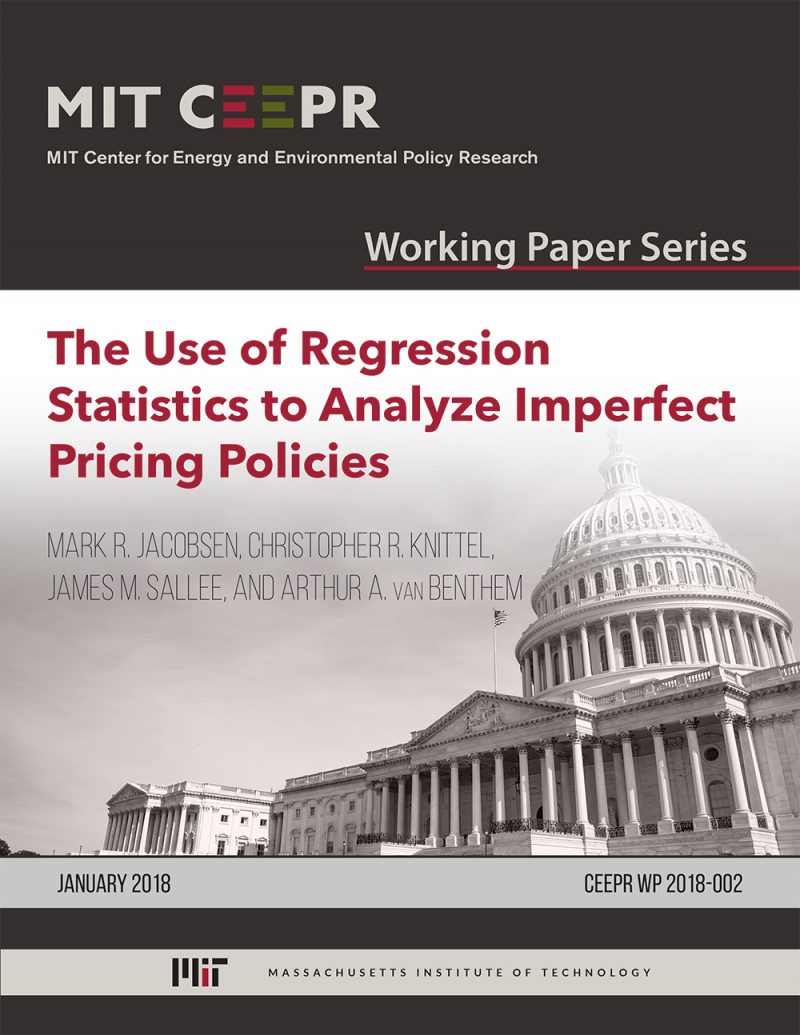The Use of Regression Statistics to Analyze Imperfect Pricing Policies
Mark R. Jacobsen, Christopher R. Knittel, James M. Sallee, and Arthur A. van Benthem
January 2018
Corrective taxes can completely solve a variety of market failures, but actual policies are commonly forced to deviate from the theoretical ideal due to administrative or political constraints. This paper presents a method that requires a minimum of market information to quantify the efficiency costs of constraints on the design of externality-correcting tax schemes, or more generally the costs of imperfect pricing, using simple regression statistics. We demonstrate that, under certain intuitive conditions, standard output from a regression of true externalities on policy variables, including the R2 and the sum of squared residuals, has an immediate welfare interpretation—it characterizes the relative welfare gains achieved by alternative policies. We utilize our approach in four diverse empirical applications: random mismeasurement in externalities, imperfect spatial policy differentiation, imperfect electricity pricing, and heterogeneity in the longevity of energy-consuming durable goods. In two cases, we find that policy constraints are relatively harmless, while in the other two cases, the constraint induces large inefficiencies. Regarding the case of durable longevity, we find that policies that regulate vehicle fuel economy, but ignore the differences in average longevity across types of automobiles, recover only about one-quarter to one-third of the welfare gains achievable by a policy that also takes product longevity into account.
Keywords: Corrective taxation, second-best, externalities, imperfect pricing, energy efficiency
JEL: H23, Q58, L51



